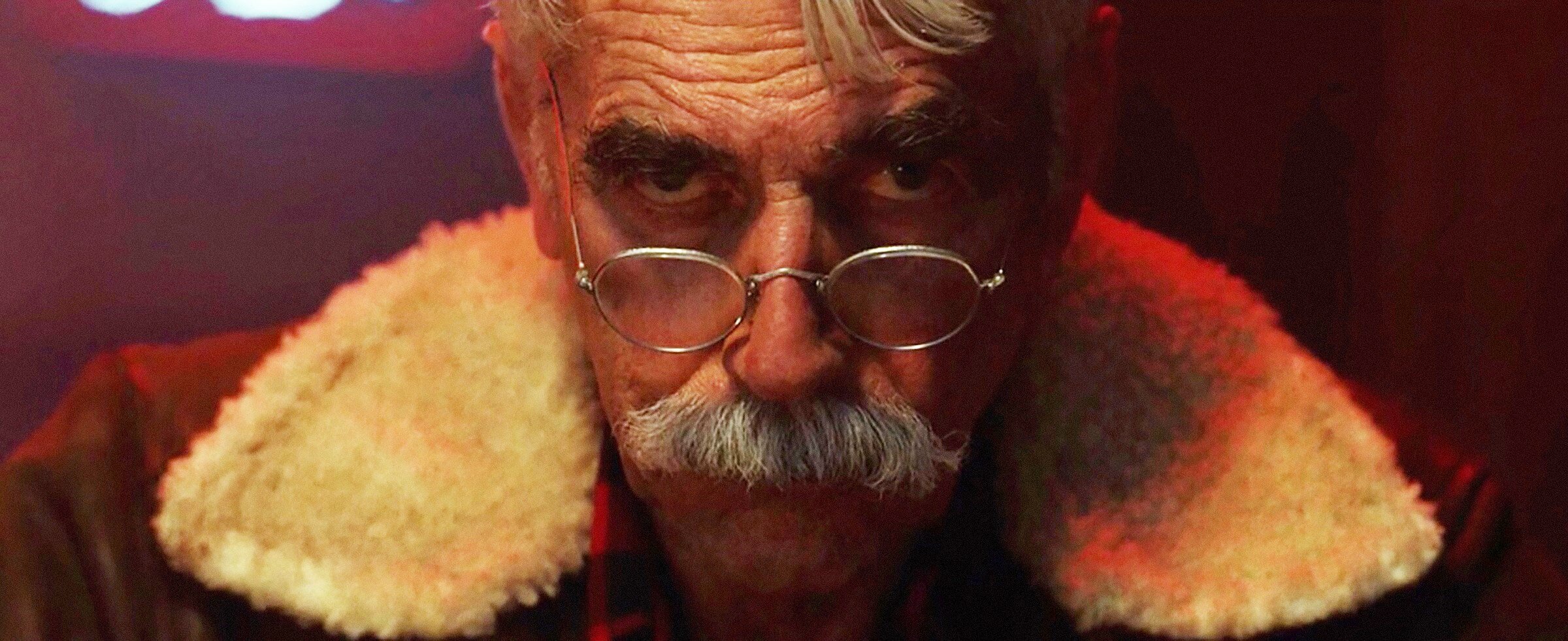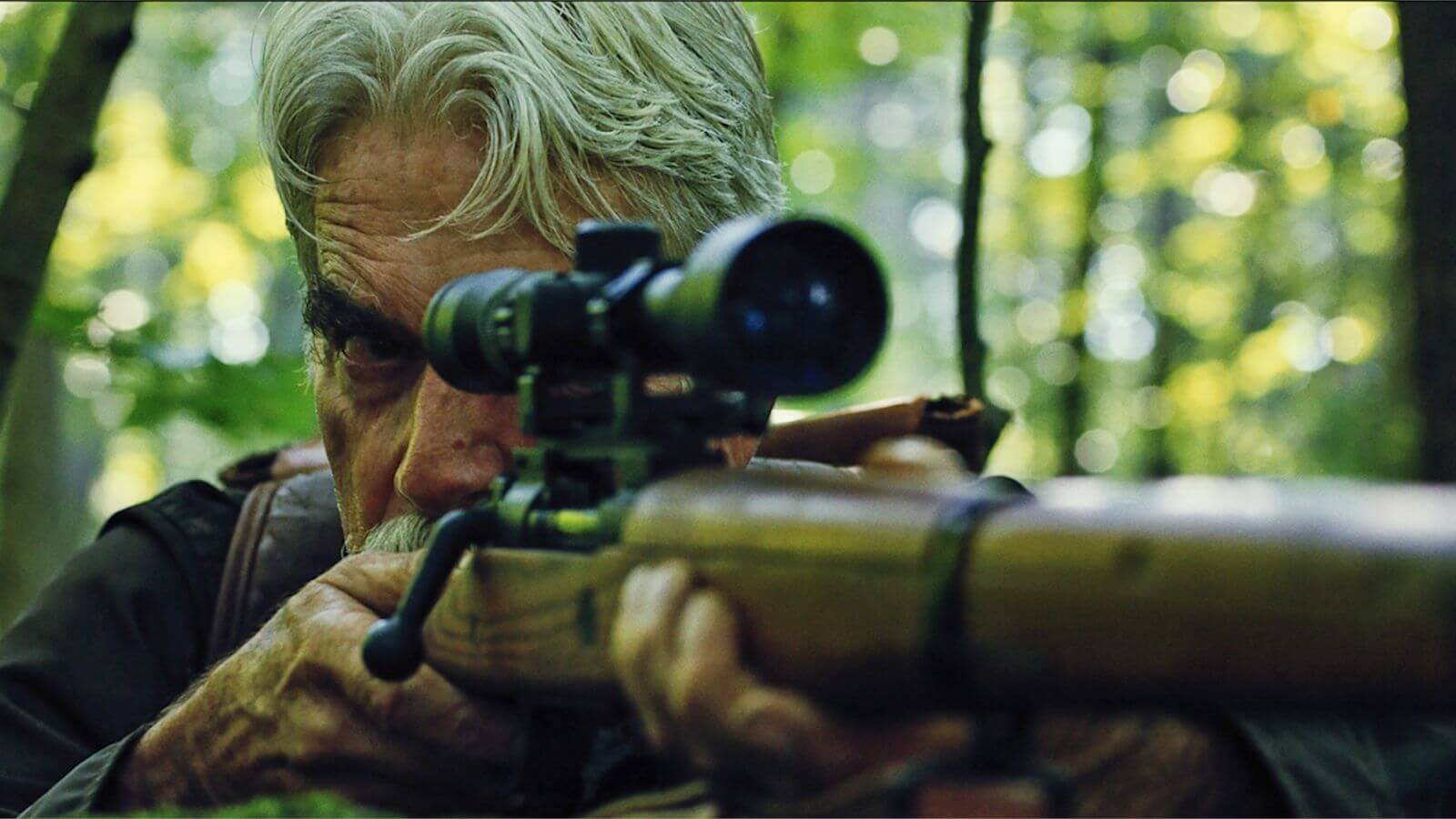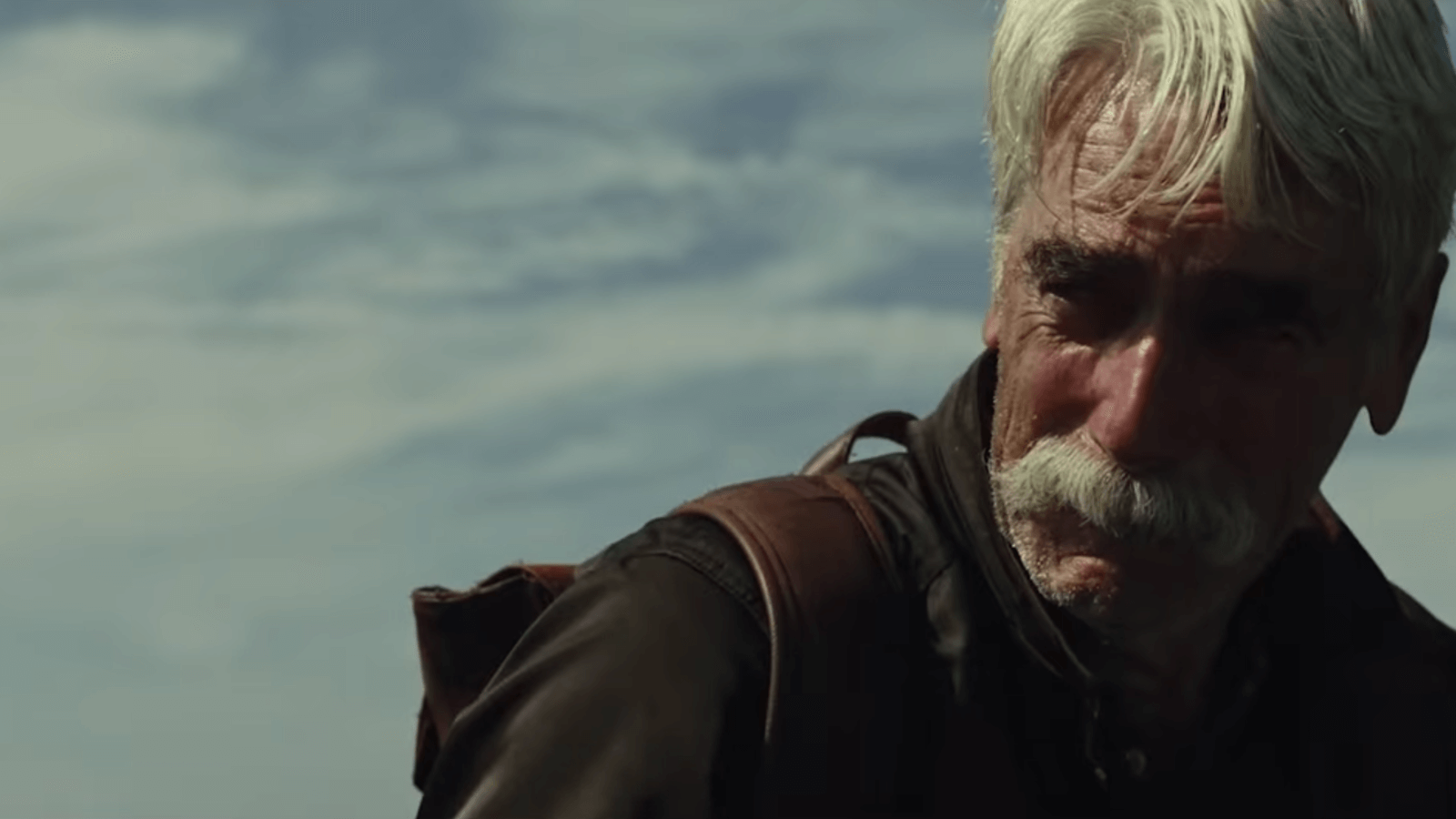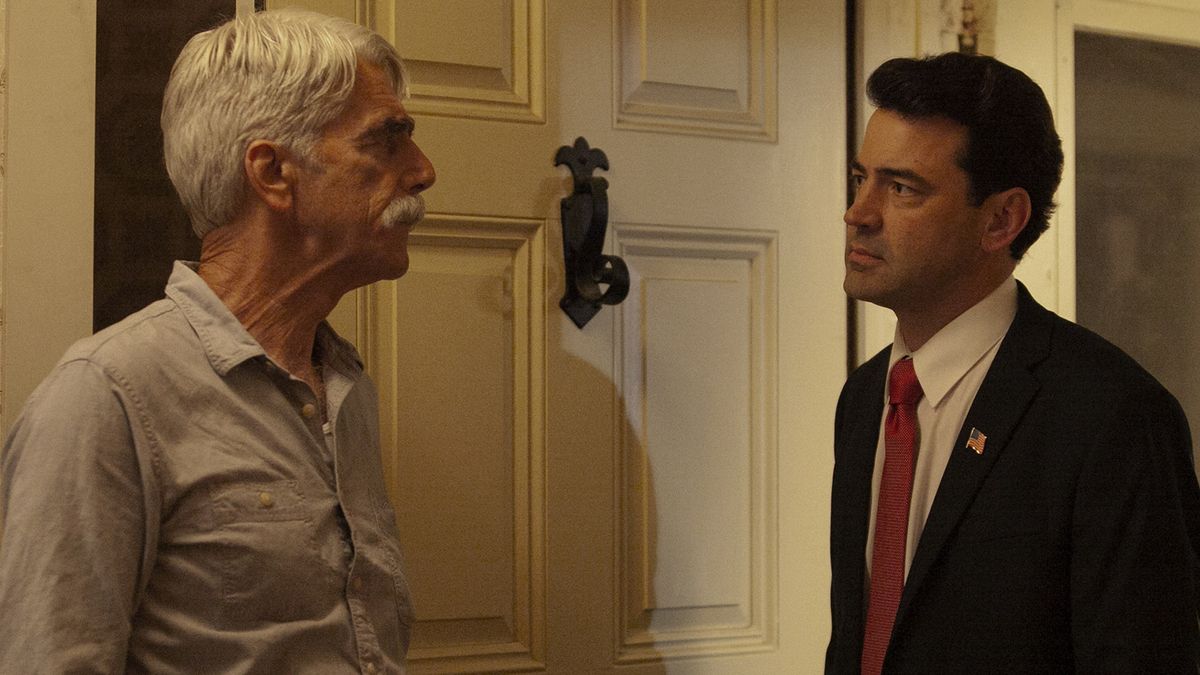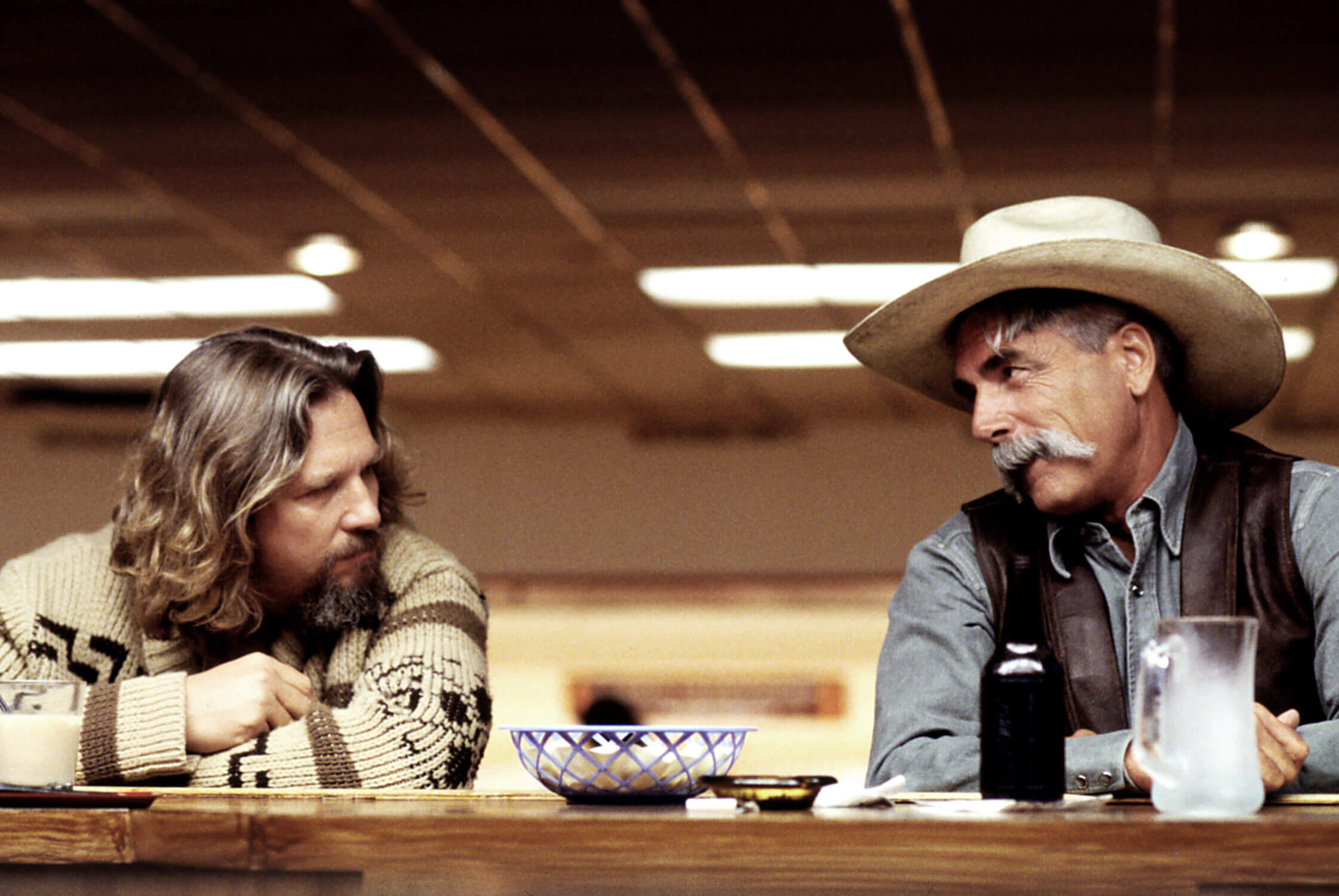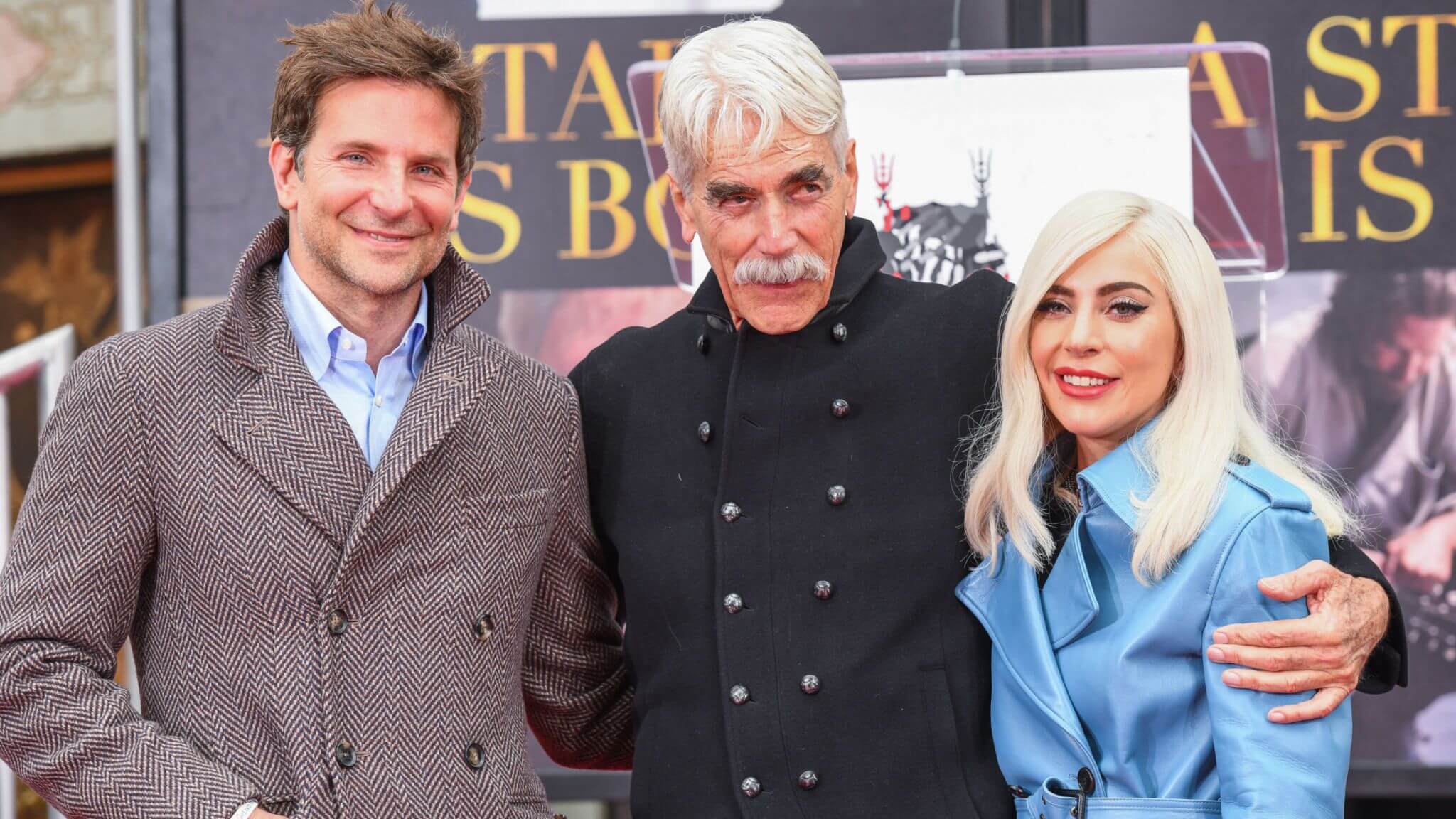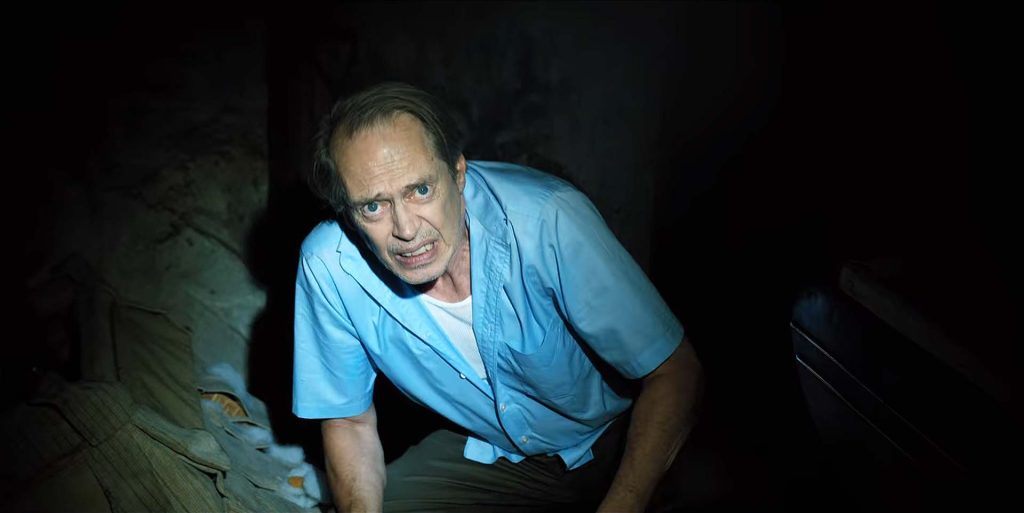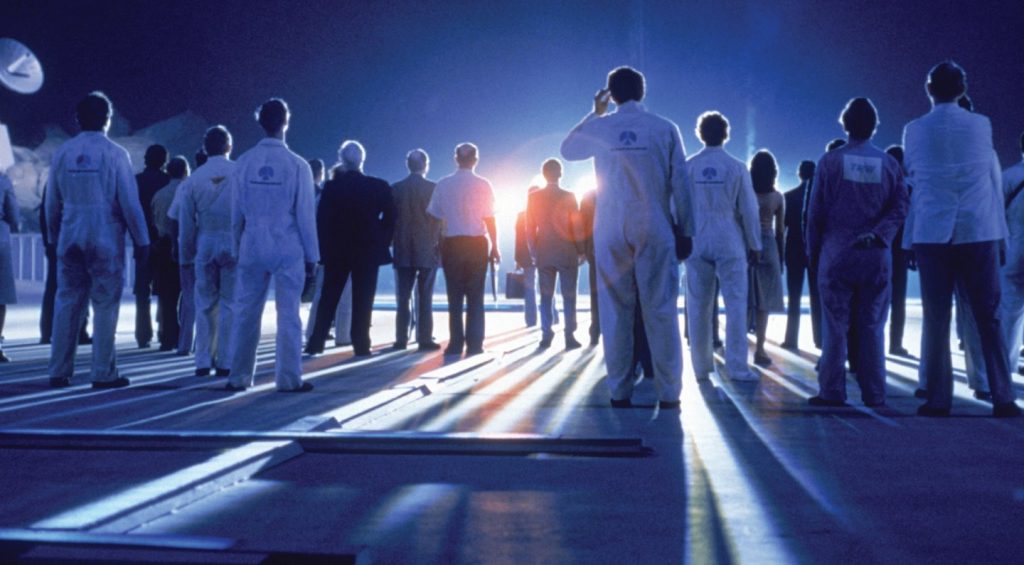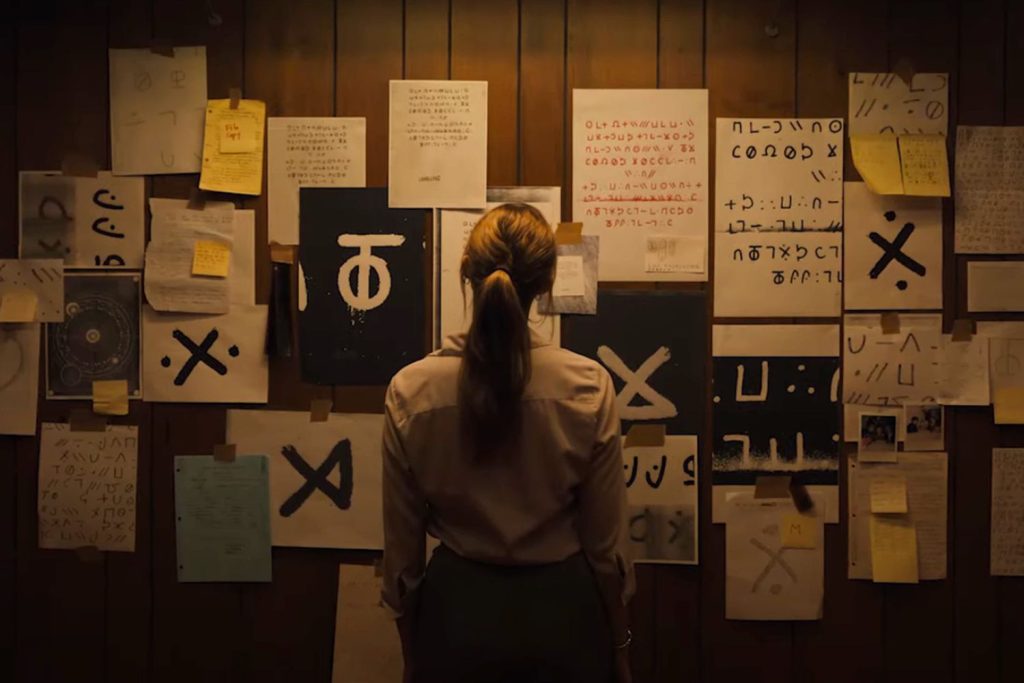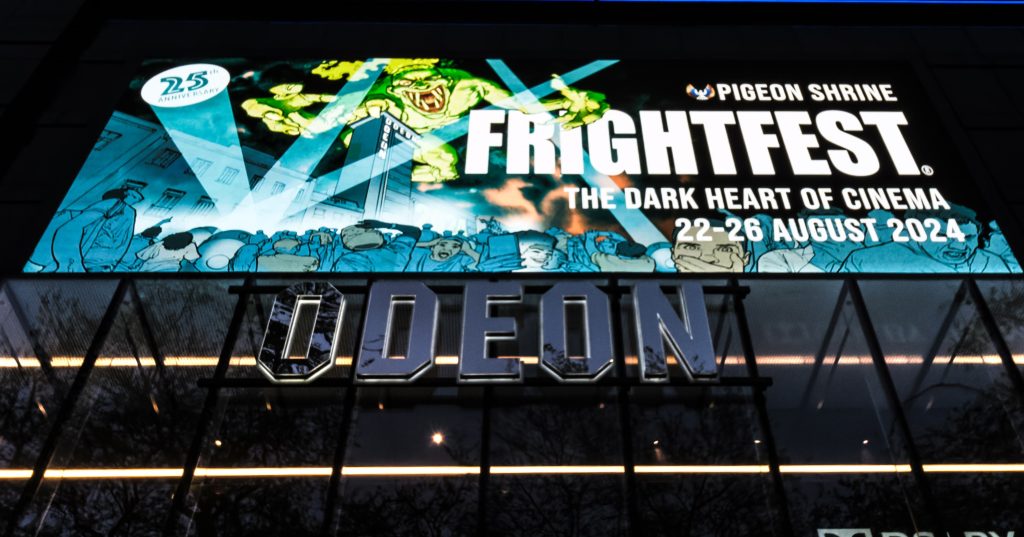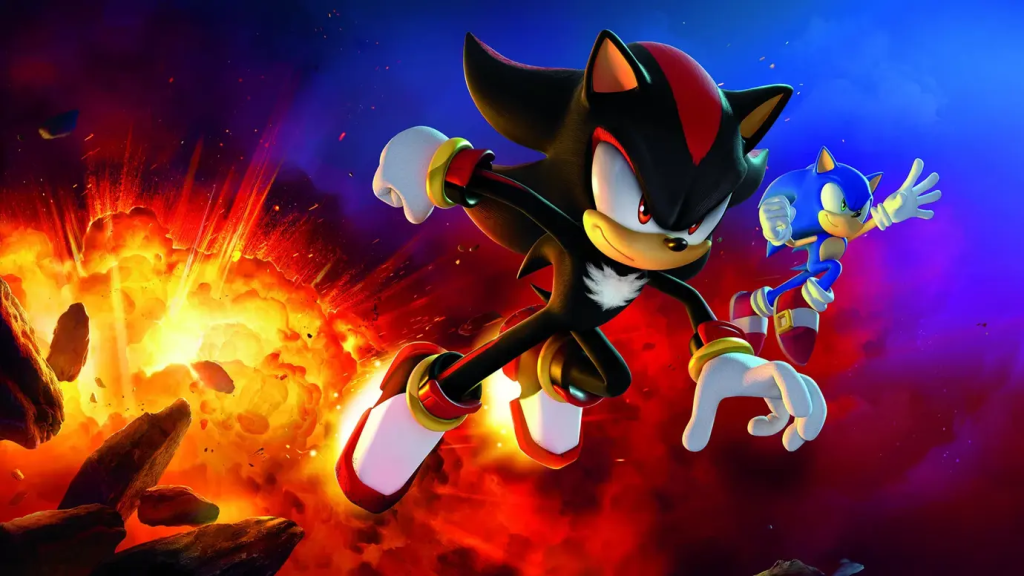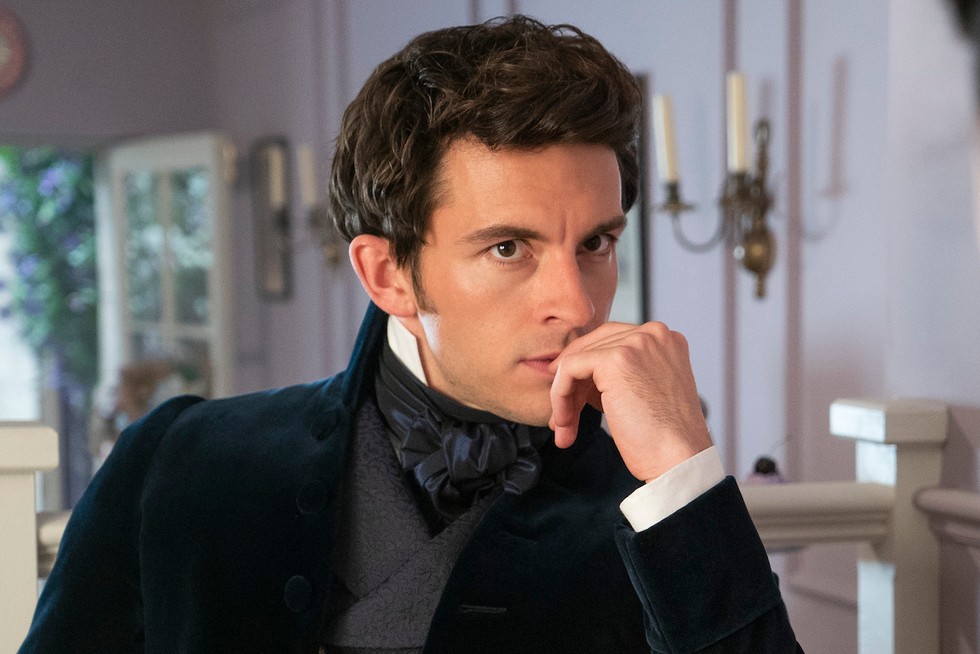With a career spanning 50 years, Sam Elliott is a hugely familiar face (and voice) to so many of us thanks to offerings such as The Big Lebowski, The Hero, A Star Is Born, Road House, We Were Soldiers, Ghost Rider and a ridiculous amount of other projects. Now, Elliott is headlining the massively impressive The Man Who Killed Hitler and Then the Bigfoot as Calvin Barr, a World War II soldier who, yes, did indeed off Adolf and is now on the trail of Bigfoot. But there’s a lot more to this feature than merely a gimmicky title, and we were lucky enough to grab some time with the absolutely charming Sam to discuss his latest movie, his career to date, being pigeonholed, the ever-changing film industry, Lady Gaga withdrawal symptoms, and so much more. And seriously, if there’s ever been a nicer, more genuine and sincere gentleman in the movie business, we’ve yet to make their acquaintance.
STARBURST: The concept of The Man Who Killed Hitler and Then the Bigfoot is a movie that’s far more than just an attention-grabbing title, so how was it to tackle such a unique and thoughtful picture?
Sam Elliott: I’ve not done a lot of press for this film because I’m working on this television show, The Ranch, and at the same time for the last three months I’ve been on that train for the awards season. It didn’t give me a lot of time with the people I would’ve loved to have been with, and that’s Robert [D. Krzykowski – director]. When the script came to me, immediately I thought “Wow!” I knew this was a first-time director and I was just kind of wondering where it came from. Robert is about 30 years old. On some levels it’s very simple yet on other levels it is very complex and thoughtful. I was amazed that I got such a script from such a young man, and through the course of it I became very attached to Robert. I have the highest regard for him, not only as a filmmaker but as a human being. He’s one of those guys that have a lot to offer, and I don’t think we’ve seen the last of him, for sure.
In the bonus content included with this release, Robert explains how he had been working on the movie in some form or fashion for 12 years – which is pretty crazy to think about.
It’s insane. And that’s the truth of it; it was a 12-year venture for him. There were a number of drafts along the way. He told me one time that his dad read one of the early drafts – when he felt like he had something he wanted to share, he showed it to his dad – and he said he got a lot of support, a lot of encouragement from his father to push on, to go on with it. Robert lives in Western Massachusetts, he lives this provincial existence – if that word means anything these days – and he’s just a lovely man and it’s a lovely family in this lovely community. Like I said, he’s a wonderful human being; he’s as far away from the Hollywood mentality as you can possibly get. He came up with this piece and I think it’s really going to resonate with film-lovers. It certainly has over here; it’s been well received, well reviewed. Unfortunately, it didn’t end up in the hands of anyone who’s going to get it in theatres, but it works really well and I think in the end Robert’s going to be pleased. And if he’s pleased, I’m gonna be pleased. I had a great run myself this year and I couldn’t be happier with what’s gone on and what’s come my way. I’m very fortunate, I’m very thankful for it, but to see Robert get the recognition that I feel so strongly that he deserves would be a wonderful thing. There’s a huge future coming for him.
With The Man Who Killed Hitler and Then the Bigfoot, when did the project first come to your attention?
I think it was not early on at all. The script that I got was basically the script that we shot, so I was a long way down the road. I had not met Robert or even heard of Robert. When the script came and the little short film came along with it, I think it was at that time that I heard the name John Sayles. I thought, “Wow, if John Sayles is backing this guy then there must be something going on here.” Then I later heard Douglas Trumbull, the Academy Award-winning special effects man. I thought, “How is it possible that this young kid has these older guys around him and showing him such support?” It just so happens to be that he’s a talented man. And I keep getting back to it, but Robert’s it’s humanity. He’s really an exceptional man on that level; he’s different, he’s a different kind of fish that swims in this larger pond.
There was a time, because of my work schedule on the Netflix series, that I was not going to do the film. I told Robert, and it was the same thing that happened with me on [The Amazing] Spider-Man. They got down to really the end of negotiations, and I had a conflict. With Robert, it was not over a conflict, it was the commitment to the show. Going to Massachusetts and working on a film, I just couldn’t do that so I wavered on it. I wasn’t going to do it and we kind of let it go. Then Robert sent a letter to my agent – it wasn’t to me, it was to my agent – thanking him for all of the support he’d given Robert. It wasn’t like he was, “I’m so mad at you guys. You have to make this work out. Sam said he’ll do it, now he says he won’t!” It wasn’t anything negative at all, it was just thanking this man for the support and the help that he’d given over the course of the last month and a half. My agent forwarded that letter on to me, and I picked up the phone right there and said, “Robert, I’ll be there. Just let me know when.” It was solely based on that letter. It wasn’t that he was nudging anybody, he was just thanking somebody who he didn’t even know for the support he’d given him. That just made me want to work with him and I wanted to help him achieve his vision.
In terms of the script itself, what was it that most appealed to you about it?
It’s brilliant on so many levels, there’s so much going on there. There’s the surface thing of killing Bigfoot and Hitler. I loved that, I loved the way it was dealt with on film – particularly the Hitler part. It’s such a fantastical tale that’s told in such a real, believable way. Quentin Tarantino had Hitler dying in a movie theatre in a fire [in Inglourious Basterds], so why not have some imposter walk into his office and blow him away in his tracks. Neither’s more preposterous than the other, it’s just great filmmaking. There was something about Calvin Barr. I’ve done contemporary military films throughout my career, and there was something about Calvin Barr that just spoke to me. This man who lost the love of his life, who I think suffers on some deep level from PTSD. There’s this loving relationship with his brother that’s not quite there, and he’s beloved by the community and his dog. There’s a lot going on in this guy’s soul. That’s what really appealed to me.
It’s just honest. It’s honest storytelling. The big stretch is obviously this Bigfoot, but that was dealt with in such a way that you kind of want to buy into it. It kind of reads in the movie like he [Calvin Barr] only killed two people, but I have no doubt that Calvin was quite the warrior during his service time in the military. He didn’t end up getting shipped over there to kill Hitler and get this reputation with the military and the FBI by killing one man. That’s the thing that causes such angst with PTSD. I really think that’s what it is: the killing. We’re the masters of getting boys to kill but we don’t know how to teach them to deal with the killing. I fully believe that.
Given how so much of the movie is based around the fallout of war and the sacrifices of it, would it be fair to say that the message of this picture is even more relevant these days than it was for the soldiers of World War II?
I think that’s absolutely true. And it’s that potential that really spoke to me; that that’s there, that we can recognise that the world is in such chaos right now. I don’t want to get in to politics but I hate what’s going on in this country right now. And I see it going on across the world – in your country with Brexit – it just seems like everybody’s polarised. Nobody’s talking to each other, everybody’s talking at each other. There’s no listeners in the world, just a bunch of loudmouths. It’s terrible. That’s another thing about this film; it’s this hope-filled tale and there’s just something so sweet about this picture. I think that’s what speaks to people. You see people weeping in this movie along with hooting at it. As preposterous as it is, you see people shedding a tear watching this.
It is certainly a very poignant picture. With the title, though, do you think that The Man Who Killed Hitler and Then the Bigfoot might give people the wrong impression as to what to expect from the movie?
Yeah, I certainly do. It certainly isn’t what the title indicates, by any stretch. I don’t think there’s a lot of hate groups who are going to go and see a movie called The Man Who Killed Hitler. I was fully expecting to start getting shit in the mail from some of those groups. In the end, it is a movie. We’re entertaining people. With the title, I have talked to Robert about it. I think the title serves it well. I think it is off-putting to some people because it doesn’t really represent anything in the film other than the killing of the two entities. So, I think it short-sells the movie on that level, but what else would you call it?
On a slightly lighter note, have you yourself ever had any bizarre encounters with urban legends such as Bigfoot?
No, not really. I grew up in the Northwest, in Oregon. I was born and raised in California, and that’s where Bigfoot was supposed to be hanging out. I only saw the bits of film that were supposed to be Bigfoot, but I didn’t put any thought into it. That didn’t mean that I didn’t completely not believe either.
As someone who’s been involved in the industry since 1969, how do you feel about the change to film over those years? Nowadays, anybody with a camera can make a movie and try to market it.
I think what you just said about anybody can make a film and market it today, it’s the technology that’s changed it all. Clearly, on every level, for everyone, it’s a different world. It’s cheap to do, it doesn’t cost a lot of money to make a film anymore. I remember back when I was starting, it was all about “Action!” and “Cut!” and preservation and not wasting film. Today, with this digital world, the camera runs forever. Also, there’s the insatiable appetite for everything. It’s constant now, people are never satisfied. I don’t think it’s healthy. It’s like going outside and seeing people just with their heads down, looking at their cell phone, walking across a busy street or sitting across from someone at a dinner table. There’s so little real interaction.
Throughout your career, you’ve done pretty much everything. From Westerns, to drama features, to action movies, to comedy, to voice work and animation, to even superhero movies with the Hulk and Ghost Rider features, but is there still that dream project out there that you’re dying to tackle?
I think at some point I’d like to do a musical of some sort. It’s the longest shot one can make, the hardest thing. I had a lot of singing in my background in local ensembles and choirs since I was a young kid. My mom dragged me to sing in a church choir when I was 4-years-old and I always sang in different things as I grew up, in college, in high school, in grade school. So that’s there. Whether that will ever happen, we’ll see. I just want to keep doing some good work. I don’t have any desires to retire or move along just yet. There’s nothing to move along to other than trout fishing.
Was there ever a point in time, especially coming off the back of the Westerns of the ‘60s and ‘70s, where you felt you were becoming pigeonholed at all?
There was. I’m not sure if that’s something I just felt and that it wasn’t really the case. I think it was not long before The Big Lebowski that I felt that way. I remember I was in Texas with John Millius on a thing called Rough Riders. It was a military story but the guy was still riding a horse and was a cowboy of some sorts. I was the cowboy. I remember getting the script [for Lebowski] from the Coen Brothers delivered to me on the set. I couldn’t wait to get back to my room and read it because I thought this could not possibly be a cowboy, it’s going to be some wacky fucking character that they’re the masters of creating and it’s going to be a chance to do something else. Then I went and read this thing and it’s clearly a cowboy, the drugstore cowboy, and then I kind of thought differently of it after that. I looked back over the course of things. That reputation that I had, I think it came from very early on when I was a contract player doing episodic television and playing these minor, minor roles in Westerns. As things progressed and bigger roles came around, I just think on some level that all of the really good stuff came my way because I had that reputation. It took me a while to figure that out. I believe that’s the truth, so I’ve got away from feeling like I was pigeonholed for a moment to just being thankful for everything.
From speaking to you for 30 minutes here, there’s just a great sense of humility and appreciation to you. Has that always naturally been the case or was there ever a point where you had to stop yourself from getting carried away in the bubble of celebrity and fame?
I don’t think so, I think it’s always been very clear where I came from. I had great parents, I was raised right, and I also grew up in a time when it was a lot of fun to grow up. Everybody was unified instead of polarised like we are today. I don’t mean that it was all ideal or to make this a generality, but it was a better time to grow up. I had good parents that were together until my dad died. My mother lived to be 97 years old and I was with her when she died. I had good parents and a long, long extended family. They were good people. There was a lot of history in my family from the state of Texas, and they were salt of the earth people.
It may be an impossible question, but throughout this 50-year career is there a particular project or two that stand out as your favourites?
I think the work that I’ve done over the last couple of years on some levels stand out. But then if I’m going to talk about anything, then it eliminates other things. I can’t eliminate Mask, I can’t eliminate Road House, I can’t eliminate some of the stuff that’s so far away from where I am today. So I guess the answer is there’s a lot of them that stand out. I think that, on some level, the thing that makes them stand out is the adventure itself, the people you work with. It’s not so much the part or the film in the end, it’s the people you’ve just encountered. Beginning with a movie called The Hero that was written for me a couple of years ago from Marc Bash, that eliminates Grandma. I’m just very, very fortunate is the truth of it. I’ve never had an experience that rivals what I’ve just had with A Star Is Born. The opportunity to work with Bradley [Cooper] and [Lady] Gaga, who I both love deeply, it was just a wonderful experience. I’m still going through the withdrawal of not seeing Lady Gaga once in a while.
Of course, you were recently on the Oscars train with A Star Is Born, but for a long time now you’ve be one of so many people’s favourites actors. For you, would you say that you appreciate all of this more now than you may have done earlier in your career?
Oh, I think I appreciate it more after 50 years than I did initially. I wanted to do this since I was a little kid, since I was 8 or 9 years old. That was when I had my first really clear thought. I went to the movie theatre where I grew up in Sacramento and I remember thinking this sure looked like fun and that it was what I wanted to do; I wanted to be a movie actor. It was never about the theatre, it was never about being a legitimate actor on some level, it was always about making films. I kept my nose to the stone and I wanted a career out of it, and I knew I had to be careful about how I expose myself and why I worked. If you work for money, I’m afraid it’s going to be a short career. Money isn’t everything. It was always just about having a career, and I’ve been very, very fortunate.
You’ve been working on The Ranch again recently, but is there anything else in the pipeline that you can tell us about right now?
I don’t know what I’m going to do next. I’m going to take a break and spend some time with my wife. I’ve been working pretty steady for the last 2 years. First it was Bigfoot during my hiatus from The Ranch, then last year it was A Star is Born. I did Bigfoot right on the heels of A Star is Born. Then the year before that it was The Hero, so it’s been a busy, busy time. There’s a few irons in the fire but I’m not overly eager. The right one will show itself at some point.
The Man Who Killed Hitler and Then the Bigfoot is available now on digital download, with a Blu-ray and DVD release set for May 6th.

